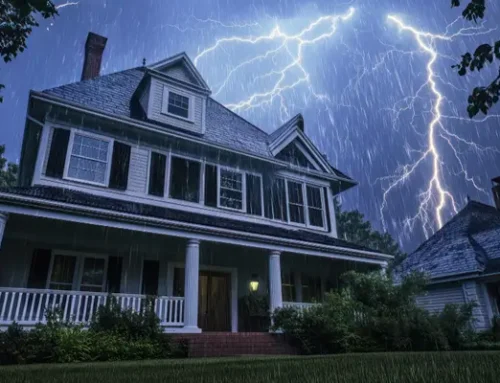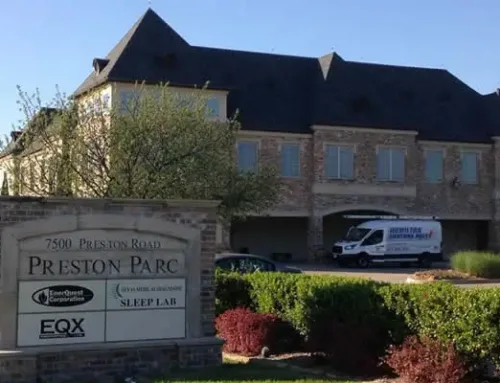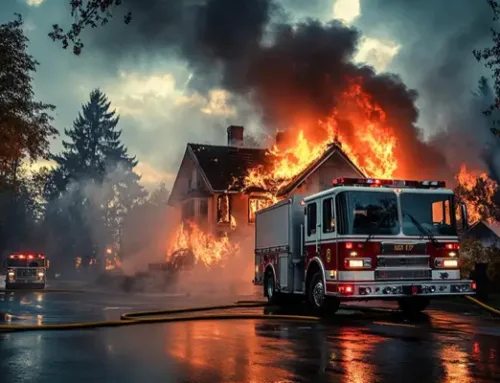When storm season rolls into Texas, lightning becomes more than just a dramatic light show—it’s a very real threat to homes, ranches, and businesses. Some property owners may wonder if installing a lightning protection system is something they can handle themselves. After all, with plenty of online tutorials and home improvement resources, DIY projects seem more doable than ever.
But when it comes to lightning protection, doing it yourself is a dangerous gamble. At Hamilton Lightning Rods of Texas, we’ve seen firsthand the risks of improper installations. Lightning protection is not just about attaching a few rods to your roof—it’s about designing and installing a complete, code-compliant safety system that meets strict national standards.
Here’s why lightning protection should always be left to trained professionals.
Complex National Safety Standards
Lightning protection systems in the U.S. are governed by rigorous codes, including:
- NFPA 780 – Standard for the Installation of Lightning Protection Systems
Published by the National Fire Protection Association, this standard sets the framework for properly designed and installed systems to minimize fire and safety hazards. - LPI 175 – Standard of Practice for the Design-Installation-Inspection of Lightning Protection Systems
Created by the Lightning Protection Institute, LPI 175 details best practices and requirements to ensure systems are safe, effective, and verified through third-party inspections.
These standards cover every detail—from the placement of air terminals (lightning rods), to conductor sizing, to proper grounding methods. Compliance isn’t optional; it’s what ensures the system actually works when lightning strikes.
For a DIY installer without extensive training, navigating these codes is nearly impossible. Missing even one requirement could mean the system won’t perform when it’s needed most.
The Danger of Improper Lightning Protection Installation
Here’s the hard truth: an incorrectly installed lightning protection system can be more dangerous than having no system at all.
Why? Because when lightning strikes, energy always looks for the fastest path to the ground. A system that’s poorly designed or improperly grounded can:
- Redirect lightning indoors through your electrical system, increasing the risk of fire or shock.
- Create side flashes, where lightning arcs from the conductor to nearby materials, damaging your roof or walls.
- Give a false sense of security, leading property owners to believe they’re protected when, in fact, their building is more vulnerable.
We’ve inspected countless DIY or “handyman” lightning protection setups in Texas, and too often, they not only fail safety inspections but also present serious hazards.
Why Professional Lightning Protection Installation Matters
At Hamilton Lightning Rods of Texas, our installers are trained and certified to follow NFPA 780 and LPI 175 requirements. That means:
- Custom Design – Every system is engineered for the specific building, whether it’s a Dallas home, a Houston office, or a Central Texas ranch.
- Code Compliance – Our systems meet or exceed national safety standards.
- Inspection & Certification – Installations are verified by third-party inspectors to guarantee effectiveness.
- Long-Term Peace of Mind – With professional installation, you can be confident your property is actually protected.
The Bottom Line
Lightning protection is not a weekend DIY project. It requires specialized training, strict adherence to national standards, and professional oversight. Improper installation can make your property more dangerous, not less.
For property owners across Texas—from Houston and Dallas to San Antonio and Austin—the smart choice is to trust the professionals. At Hamilton Lightning Rods of Texas, we’ve been protecting homes, businesses, farms, and historic landmarks for decades with expertly designed, code-compliant systems.
Protect Your Texas Property Today
Don’t risk your safety with a DIY attempt. Trust the experts at Hamilton Lightning Rods of Texas to keep your property protected the right way.

Frequently Asked Questions About Lightning Protection
Q: Can I install lightning rods myself?
A: No. Lightning protection systems must follow strict national standards such as NFPA 780 and LPI 175. Improper installation can increase the risk of fire or side flashes. Always hire a certified professional.
Q: Is a poorly installed system worse than having no lightning protection?
A: Yes. A badly designed system can channel lightning into your home or business in unsafe ways, causing more damage than if the property had no system at all.
Q: How much does professional lightning protection cost in Texas?
A: The cost depends on the size and design of the building. Homes, ranches, and commercial properties all require different layouts. Hamilton Lightning Rods provides custom quotes based on your property’s needs.
Q: Do all buildings in Texas need lightning protection?
A: While not every structure requires it, buildings in storm-prone regions of Texas—such as Dallas, Houston, San Antonio, and Central Texas ranches—are at higher risk and strongly benefit from a professionally installed system.
Q: What standards should my system meet?
A: Look for systems that comply with NFPA 780 and LPI 175. Hamilton Lightning Rods installs systems that meet or exceed these national standards and can be certified by third-party inspectors.

UL Listed lightning protection system installer
Why hire us for your Lightning Protection System
You cant stop lighting from striking your home or business, but you can protect your house or office from the strike. At Hamilton Lightning Rods, your Lightning Rod Pros,(LRP), we provide the highest quality workmanship and parts together with 55 years of experience, in every solution we make. We have manufactured proven installations that guard against the most powerful strikes. When you want peace of mind call our Lightning Rod Pros.
Hamilton Lightning Rods is one of Underwriters Laboratories listed installers All Materials Meet or Exceed UL 96/96A NFPA 780 LPI 175/177 Requirements.


UL Lightning Protection Systems E529936
Elite Home Advisor Service






